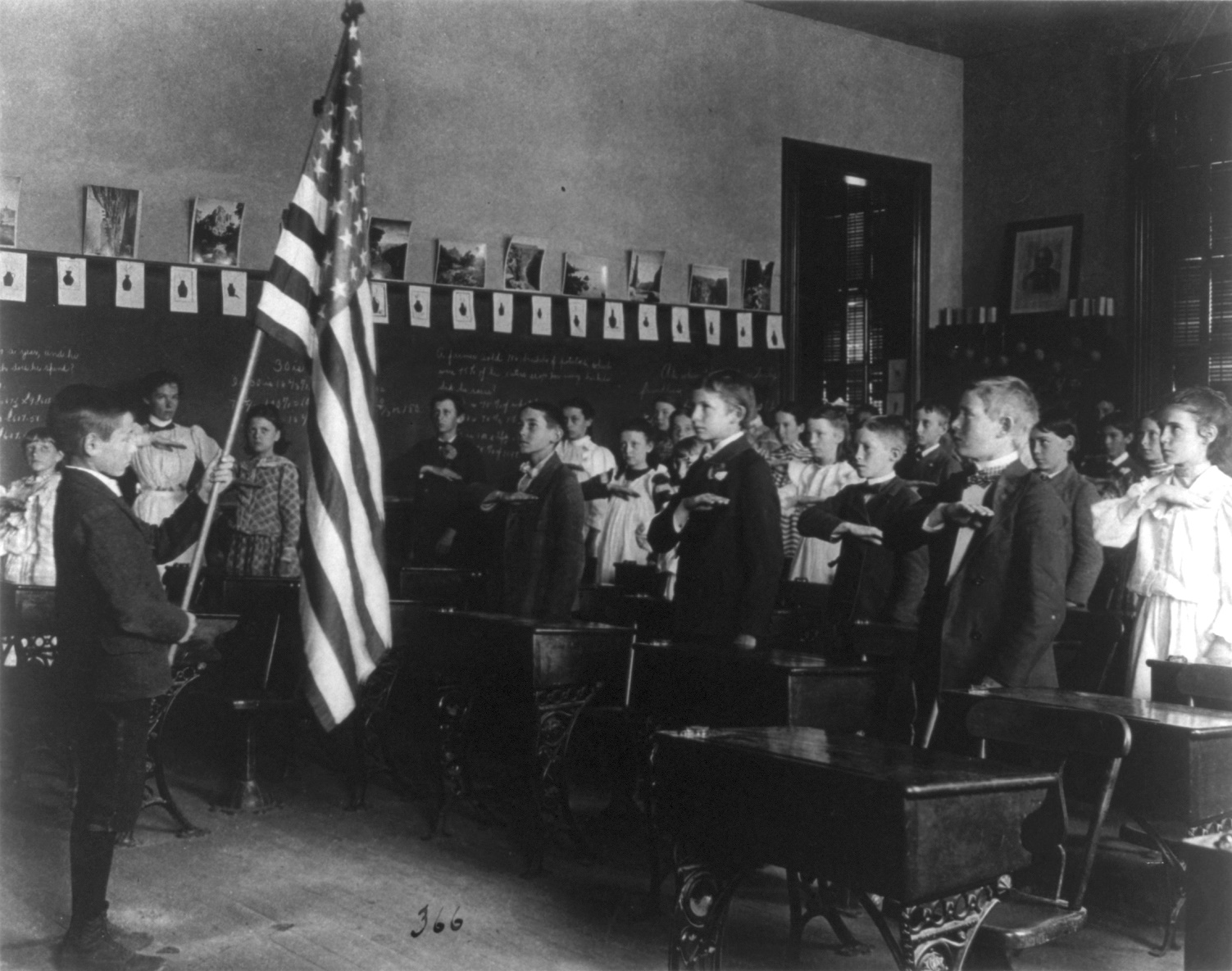 This one gets 'em every time without fail. It separates the real Christian from the CINOs.
This one gets 'em every time without fail. It separates the real Christian from the CINOs.by Laurence M. Vance
"I pledge allegiance to the flag of the United States of America, and to the republic for which it stands, one nation under God, indivisible, with liberty, and justice for all."
There are three holidays that cause otherwise sound-in-the-faith evangelical, conservative, and fundamentalist Christians to lose their religion.
I am referring to Memorial Day, the Fourth of July, and Veterans Day.
One of these holidays doesn’t even have to fall on a Sunday for some churches to go wild with celebration.
Memorial Day, of course, is always observed on a Monday. The other two holidays only fall on a Sunday every seven or so years. But if one of them doesn’t happen to fall on a Sunday, the Sunday before the holiday will do just as well. In some years, like when the Fourth of July or Veterans Day occurs late in the week, the Sunday after the holiday is reserved by some churches for observation.
As if the blind nationalism, hymns to the state, and exaltation of the military that occurs in some churches on these Sundays isn’t bad enough, sometimes the festivities also include the reciting of the Pledge of Allegiance, in church, by the congregation, facing the flag on the platform. The Pledge is usually led by the pastor or a boy scout or veteran, sometimes in uniform.
This is not only unfortunate; it is an anti-biblical disgrace.
There are also several reasons why Christians that treasure liberty, are familiar with American history, and know the history behind the Pledge (written by a socialist minister) would waste his time saying the Pledge. Again, I want to focus on one of them.
In 2000, an atheist sued his daughter’s school district because he said that the words "under God" in the Pledge amounted to an unconstitutional establishment of religion. He lost.
After an appeal by the atheist parent, the Ninth Circuit Court of Appeals ruled in 2002 that the phrase in question was unconstitutional.
After an appeal by the school district, the U.S. Supreme Court ruled in 2004 that the father of the child lacked standing to file the lawsuit because his daughter’s mother had sole legal custody of her and that she was not opposed to her daughter reciting the Pledge. The ruling of the appeals court was then reversed.
In 2010, the same federal appeals court upheld the words "under God" in the Pledge in another case, ruling that the phrase does not constitute an establishment of religion.
The idea that the words "under God" in the Pledge of Allegiance violate the Establishment Clause of the First Amendment is ludicrous. As stated by the Ninth Circuit Court of Appeals in its 2010 ruling:
Not every mention of God or religion by our government or at the government’s direction is a violation of the Establishment Clause.
We hold that the Pledge of Allegiance does not violate the Establishment Clause because Congress’ ostensible and predominant purpose was to inspire patriotism and that the context of the Pledge – its wording as a whole, the preamble to the statute, and this nation’s history – demonstrate that it is a predominantly patriotic exercise. For these reasons, the phrase "one Nation under God" does not turn this patriotic exercise into a religious activity.
One reason why Christians should not recite the Pledge is a simple one, and one that has nothing to do with patriotism or religion.
The United States is not a nation "under God."
The United States is in fact about as far from being "under God" as any country on the planet.
The United States leads the world in the incarceration rate, the total prison population, the divorce rate, car thefts, rapes, total crimes, illegal drug use, legal drug use, and Internet pornography production.
At least the United States is second to Russia when it comes to abortions.
According to the Guttmacher Institute, "nearly half of pregnancies among American women are unintended, and about four in 10 of these are terminated by abortion" and "twenty-two percent of all pregnancies (excluding miscarriages) end in abortion."
There are over 1,700 abortion providers in the United States. And even worse, 37 percent of women obtaining abortions identify as Protestant and 28 percent as Catholic.
Only a madman would say that the United States is a nation "under God."
Oh, but the Pledge is just some words, some say, the reciting of which doesn’t really mean anything.
Then why say it? If the Pledge is just some words that don’t really mean anything, then it makes more sense not to say it than to say it.
The Pledge doesn’t say that the United States used to be one nation under God. It doesn’t say that the United States should be one nation under God. It says that the United States is one nation under God.
That is a lie.
Christians are not supposed to lie:
Lie not one to another, seeing that ye have put off the old man with his deeds (Colossians 3:9)
Wherefore putting away lying, speak every man truth with his neighbour: for we are members one of another (Ephesians 4:25)
Thou shalt not bear false witness (Romans 13:9)
Is it unpatriotic to not say the Pledge? It may be. But it is certainly right, Christian, and biblical not to.
November 11, 2011
Laurence M. Vance [send him mail] writes from central Florida. He is the author of Christianity and War and Other Essays Against the Warfare State, The Revolution that Wasn't, and Rethinking the Good War. His latest book is The Quatercentenary of the King James Bible. Visit his website.

